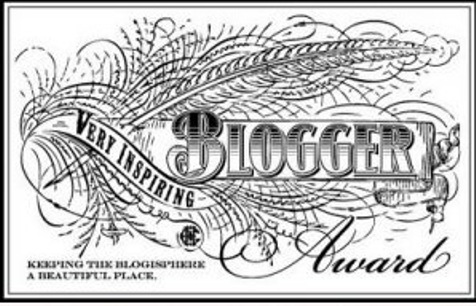Language & Alphabet
Although most Bulgarians speak at least one foreign language (typically Russian for the older generation and English for those educated after 1989), a few words of Bulgarian can go a long way when visiting.
The Bulgarian language is a Southern Slavic language. The Slavic family consists of about a dozen living languages, among them Russian, Polish, Czech and Serbian. Bulgarian is written in the Cyrillic alphabet, like many Eastern Slavic languages, and Bulgaria is in fact where Cyrillic originated.

Slavic Languages (Southern Slavic in dark green)
Although Bulgarians trace back to the Bulgar tribe of Central Asia, only a handful of ancient Bulgar words have survived in the language, among them the first person singular pronoun. For every other Slavic language, the word for “I” is “Ya”. In Bulgarian, it’s “Az” (pronounced “as”). Bulgarian has genders (masculine, feminine, neuter), but no cases, and nine tenses. Like Spanish, Bulgarian has a polite form (second person plural instead of singular) when addressing elders or distant acquaintances. It is a phonetic language, meaning that by sounding out the combination of characters, you arrive pretty close to the actual pronunciation of the word. A slight exception is so called darkening, which occurs at the end of words that end in voiced consonants. The word “grad” in Bulgarian means “city”, and it’s pronounced “grat“: the voiced “d” at the end is “darkened” to its voiceless counterpart “t” to make it easier to pronounce.
Bulgarian is not without its quirks. Pluralizing a word is often as easy as adding “i” to the end. “Kartof” (potato) becomes “kartofi” (potatoes). However, many nouns are pluralized differently, with endings such as “-a”, “-e”, “-ove”, “-na”, depending on the length and gender of the noun.
It may be daunting visiting a country that uses a different script, but since Cyrillic is phonetic and many characters are similar, learning the basics should be quite painless. Additionally, many street signs and menus in main cities and tourist destinations are transliterated into Latin script.
Essential Phrases
While a comprehensive Bulgarian course is beyond the scope of this blog, I will be posting groups of essential phrases, the first of which is below:
| аз | az | I |
| да | da | yes |
| не | ne | no |
| добро утро | dobró utro | good morning (reserved for someone you woke up in the same house as) |
| добър ден | dóbur den | good day (general greeting) |
| добър вечер | dóbyr vécher | good evening (after 7 pm) |
| лека нощ | léka nosht | good night (on parting) |
| довиждане | dovízhdane | goodbye |
| благодаря | blagodaryá | thank you |
| извинете | izvinéte | excuse me |
| говорите ли английски | govórite li anglíyski | do you speak English |
| помощ | pómosht | help |
| не разбирам | ne razbíram | I don’t understand |
In addition, check out this great video from watchmojo.com for some more essential phrases:
Alphabet
The Bulgarian alphabet consists of 6 vowels and 24 non-vowels.
Vowels:
А а = A a (sound in bat)
Ъ ъ = “uh”. Take “a” and close your mouth halfway (sound in bust)
Е е = E e (sound in pet)
Ии = I i. Take “e” and close your mouth halfway (sound in metre)
О o = O o (sound in off)
У у = U u. Take “o” and close your mouth almost all the way (sound in boom, but shorter)
Consonants:
Basic consonants:
Бб (B) and Пп (P), Вв (V) and Фф (F), Гг (G) and Кк (K), Дд (D) and Тт (T), Зз (Z) and Сс (S).
Unmatched consonants:
Лл (L), Мм (M), Рр (R), Нн (N) and Хх (H, but harsher, like Darth Vader breathing out)
Composite consonant sounds (these are lots of fun):
Жж (zhivago), Цц (klutz), Чч (check), Шш (shopping), Щщ (borscht).
Йй (yoghurt), Юю (you), Яя (Yamaha)
That makes 29 letters (#30 is a variant of Йй in unstressed syllables that only has a lowercase option, ь, which is pronounced like the “y” in “yoghurt” as well). Of those:
- Six are exactly the same as Latin: А, Е, О, К, Т, М. (Seven if you think of З as the way we write a cursive z (ʒ))
- Five are “false friends”: they look like Latin characters but mean different things: У(U), Р(R), Х(H), Н(N), С(S).
- Two are “backwards”: Я (backwards R = Ya) and И (backwards N = I)
- The rest just look impressive in spy thrillers: Б Г Д Ж Й Л Ф Ц Ч Ш Щ Ъ ь Ю Я.
There are regional variations of Cyrillic (Russian Cyrillic for instance has 33 letters), but learning this is a good gateway to the languages of 250 million Slavs. And, in case you’d like to stare at street signs with a cheat sheet, here’s a cheat sheet:

P.S. Here’s a video of an American language student speaking Bulgarian after only a few days’ introduction. You can do it too!


[…] Language & Alphabet […]